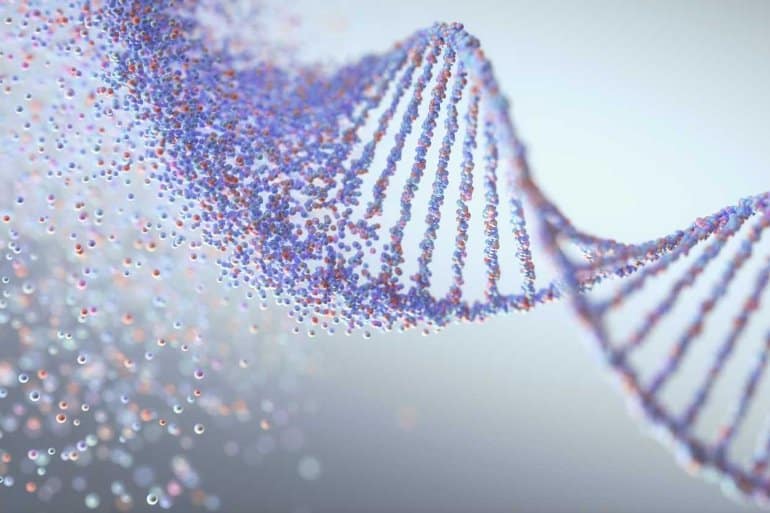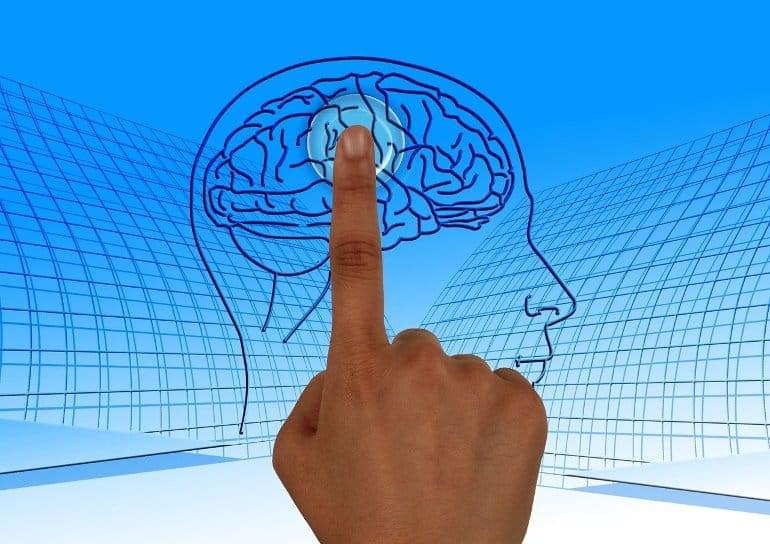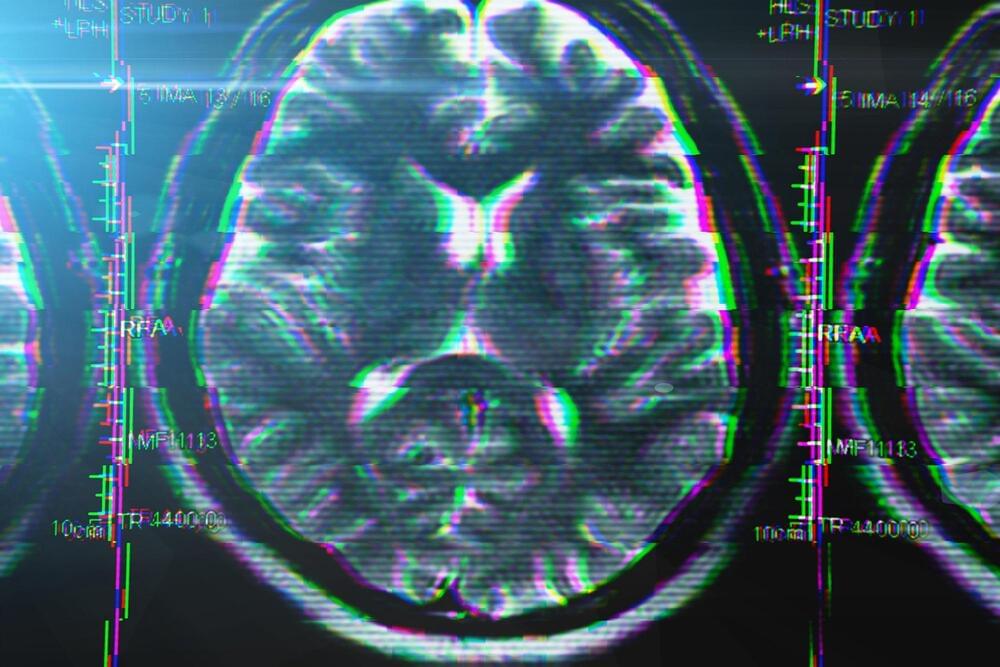Objective reality exists, but what can you know about it that isn’t subjective. According to some neuroscientists, not much.
Category: neuroscience – Page 901

New neuroscience research suggests the cerebral cortex acts as the brain’s hourglass
No one can stay awake forever. While we’re awake, our need for sleep gradually increases. If we deprive ourselves of sleep, our brain functions – such as attention or judgement – are impaired, and sleep becomes irresistible. No matter whether we are on a couch or at work – if we ignore our need for sleep, we ultimately crash.
Although sleep is vital, until now it hasn’t been known which structure of the brain tells us when we are tired. But our recent study has shown in laboratory mice that the cerebral cortex, which is responsible for the most complex brain functions – including perception, language, thought and episodic memory – helps us track our need for sleep.

Drugs, Robots, and the Pursuit of Pleasure: Why Experts Are Worried About AIs Becoming Addicts
It is quickly becoming a hot topic among machine learning experts and those concerned with AI safety.
One of us (Anders) has a background in computational neuroscience, and now works with groups such as the AI Objectives Institute, where we discuss how to avoid such problems with AI; the other (Thomas) studies history, and the various ways people have thought about both the future and the fate of civilization throughout the past. After striking up a conversation on the topic of wireheading, we both realized just how rich and interesting the history behind this topic is.
It is an idea that is very of the moment, but its roots go surprisingly deep. We are currently working together to research just how deep the roots go: a story that we hope to tell fully in a forthcoming book. The topic connects everything from the riddle of personal motivation, to the pitfalls of increasingly addictive social media, to the conundrum of hedonism and whether a life of stupefied bliss may be preferable to one of meaningful hardship. It may well influence the future of civilization itself.

Time Until Dementia Symptoms Appear Can Be Estimated via Brain Scan
“You may hit the tipping point when you’re 50; it may happen when you’re 80; it may never happen,” Schindler said. “But once you pass the tipping point, you’re going to accumulate high levels of amyloid that are likely to cause dementia. If we know how much amyloid someone has right now, we can calculate how long ago they hit the tipping point and estimate how much longer it will be until they are likely to develop symptoms.”
Summary: A new algorithm uses neuroimaging data of amyloid levels in the brain and takes into account a person’s age to determine when a person with genetic Alzheimer’s risk factors, and with no signs of cognitive decline, will develop the disease.
Source; WUSTL
Researchers at Washington University School of Medicine in St. Louis have developed an approach to estimating when a person who is likely to develop Alzheimer’s disease, but has no cognitive symptoms, will start showing signs of Alzheimer’s dementia.
The algorithm, available online in the journal Neurology, uses data from a kind of brain scan known as amyloid positron emission tomography (PET) to gauge brain levels of the key Alzheimer’s protein amyloid beta.
Will AGI incorporated machines ever become Conscious? | The SCI-AI Podcast Ep. 10 — Daniel Jue
In this podcast, I have invited Daniel Jue, one of the youngest Entrepreneurs of the field of AGI. Daniel is an Independent Artificial General Intelligence researcher at Cognami in the US. He has worked supporting the US Department of Defense, including Data Fusion and analytic development for DARPA, the Defense Advanced Research Projects Agency, whose mission is to prevent technological surprise by potential adversaries. In addition he worked with scientists and engineers at IronNet CyberSecurity, a startup with DARPA and NSA heritage who have recently gone public. In March of 2,021 Daniel took on full time AGI research, drawing upon the fields of Computer Science, Neuroscience, Philosophy and Psychology. Some of his major influences have been Jacques Pitrat’s CAIA (An Artificial AI Scientist) project, Jean Piaget’s childhood development theories and Spiking Neural Networks. He sees a generalizable substrate at the basis for AGI, where engineers design the “physics” in which intelligent behavior could emerge.
SUBSCRIBE to our YouTube Channel and “ring the bell” for all the latest videos from ‘The SCI-AI Podcast’ at https://bit.ly/3y6ISwL
- Listen to us on Buzzsprout: https://feeds.buzzsprout.com/1816580.rss.
- LIKE us on Facebook: https://www.facebook.com/podcazter.
- FOLLOW us on Twitter: https://twitter.com/MeharVik.
- FOLLOW us on Instagram: https://www.instagram.com/brightvik/
- SUBSCRIBE to our channel on Apple Podcast: https://apple.co/3gllCVL
- SUBSCRIBE to our channel on Spotify Podcast: https://spoti.fi/2WfCTZx.
Connect with Daniel Jue:
LinkedIn: https://www.linkedin.com/in/danieljue/
Connect with Vivek:
Linkedin: https://www.linkedin.com/in/vdahiya/
Twitter: https://twitter.com/MeharVik.
Instagram: https://www.instagram.com/brightvik/
Quora: https://www.quora.com/profile/Vivek-Dahiya-1
Timecodes:
0:24 Introduction of Daniel Jue.

New Gene Therapy Pathway Could Protect Us From Cancer and Dementia
Summary: A newly identified gene therapy pathway has the potential to protect us against dementia and cancer, researchers report.
Source: University of Sheffield.
Researchers from the University of Sheffield have discovered a new gene therapy pathway that has uncovered an important regulatory mechanism to keep our genome healthy. This pathway has the potential to protect us against serious life-limiting diseases such as cancer and dementia.

Drug Targets for Memory Enhancement
Summary: Researchers identified specific receptors for acetylcholine that reroute information flow through memory circuits in the hippocampus. The findings could have implications for the development of drugs to help enhance or protect memory from diseases associated with cognitive decline.
Source: University of Bristol.
Bristol-led research has identified specific drug targets within the neural circuits that encode memories, paving the way for significant advances in the treatment of a broad spectrum of brain disorders.
Consciousness: Evolution of the Mind, Documentary (2021), Official Teaser Trailer
Watch the full documentary on Vimeo on demand: https://vimeo.com/ondemand/339083
The study of consciousness needs to be lifted out of the mysticism that has dominated it. Consciousness is not just a matter of philosophy or spirituality. It’s a matter of hard science. It’s a matter of understanding the brain and the mind — a pattern structure made out of information. It’s also a matter of engineering. If we can understand the functionality of the brain, its neural code, then we can build the same functionality into our computer systems. There’s no consensus on what produces consciousness, but everyone regardless of metaphysical views can agree what it is like to be conscious. Given that consciousness is subjectivity, what consciousness is like is what consciousness is.
‘Mind’ and ‘Consciousness’ are two different but somewhat overlapping terms related to the phenomenality of our experiential reality. Different species have a variety of their biological information processors which unsurprisingly results in qualia diversity. All species live in their own unique sensory universes. There is “something it is like to be” an organism. The human brain, our biological “wetware,” has a fractal structure on many genetic and abstract cognitive levels. Information is “modus operandi” of consciousness.
If we are to reason for the non-dual picture of the world then quantum physics is directly linked to consciousness. The human brain is a physical organ that transmits and interprets electrochemical signals. Its biochemistry is certainly governed by quantum physical laws, and consciousness — which is clearly related to the functioning of the brain — must therefore be related to the quantum physical processes going on within the brain and in the cosmos at large. Research has shown that consciousness is non-local, a scientific way of alluding to a connection within a higher dimensional order. Matter has also been shown to be non-local, which hints that matter might be an expression of consciousness, emerging from the ‘Unified Field’ — the quantum layer of pure potentiality — the code layer beneath all dimensions where time and space are information.
Reality is fundamentally experiential. Nothing is real for us until perceived. A little while ago, the idea that our minds create reality would have seemed preposterous to most westerners. But today everyone in the West becomes a bit more susceptible to this bold new idealistic, computationalist thinking along with certain QM interpretations directly pointing to the fundamental laws of Nature emerging from consciousness…
*Based on recent book The Syntellect Hypothesis: Five Paradigms of the Mind’s Evolution (2020) by evolutionary cyberneticist Alex M. Vikoulov, available as eBook, paperback, hardcover, and audiobook on Amazon: https://www.amazon.com/Syntellect-Hypothesis-Paradigms-Minds…atfound-20

Neurologist Explores Link Between COVID and “Brain Fog,” Memory Loss and Dementia
A new Rutgers study will examine how COVID-19 is affecting individuals in a number of cognitive-related areas, including memory loss, “brain fog,” and dementia.
“Many people who recover from mild or moderate COVID-19 notice slowed thinking or memory loss, and this motivated us to leverage our experience in studying cognitive issues related to Alzheimer’s disease, multiple sclerosis, and HIV to examine this phenomenon,” said Dr. William T. Hu, associate professor and chief of cognitive neurology at Rutgers Robert Wood Johnson Medical School and the Institute for Health, Health Care Policy, and Aging Research.
A leading cognitive neurologist and neuroscientist, Dr. Hu is spearheading the characterization of cognitive impairment following mild-to-moderate COVID-19 at Rutgers.